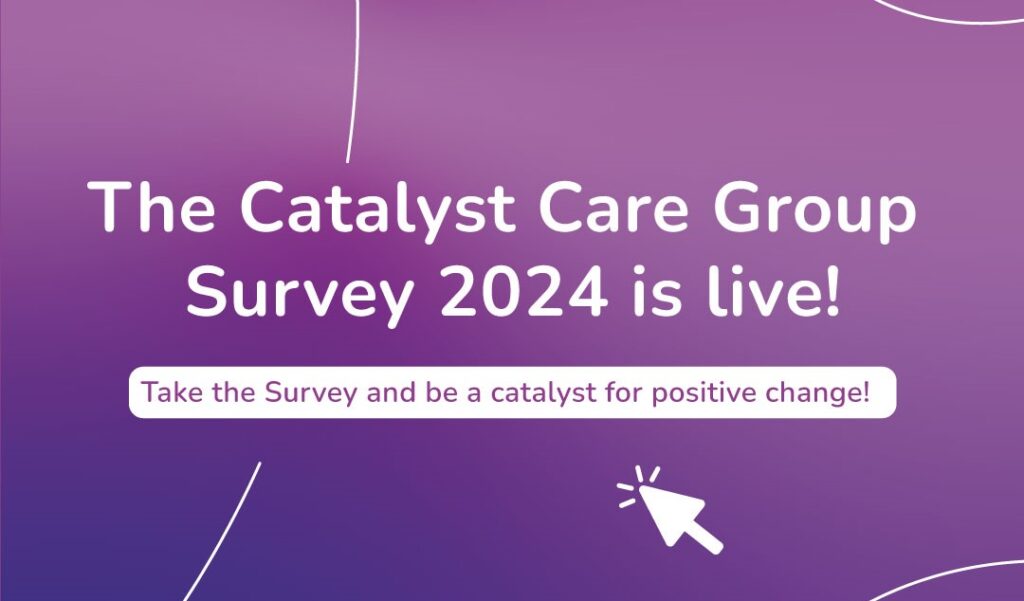What Is ADHD?
Anyone can have difficulty paying attention or sitting still once in a while. For some people, however, these behaviours can persist to a level that interferes with everyday life.
Attention deficit hyperactivity disorder can make it hard to stay on top of things or finish complex tasks that require:
- Focus
- Organisation
- Planning
However, many tools can help manage these challenges.
ADHD is not a matter of willpower. On the contrary, that is a common misconception. People with ADHD face difficulties with crucial executive function skills due to brain differences that create challenges in different areas of life.
Although some ADHD challenges can be visible, the symptoms and signs in children and adults vary and might be difficult to recognise.
Signs and Symptoms of ADHD
ADHD symptoms will vary from person to person. Some children with ADHD might experience all or just a few symptoms, but most of the people diagnosed describe this condition as the tip of the iceberg. This means that most of the symptoms are hiding beneath the surface.
ADHD mainly causes symptoms related to the ability to stay focused, but a person with ADHD may experience other symptoms, such as:
- A hard time paying attention, like performing a task such as schoolwork
- Hyperactive impulsive
- Being forgetful about tasks
- The constant need to move frequently
- Becoming easily distracted
Often the first signs of ADHD arise in early childhood.
Parents often report excessive motor activity during the toddler phase, but ADHD symptoms can sometimes be challenging to recognise from the active behaviour typical for children in the toddler phase.
Signs of ADHD in Children
The brains of children with attention deficit hyperactivity disorder work differently from the brains of children that don’t have ADHD. These differences in function mean that a child with ADHD will have a particular set of challenges and strengths.
Most often, signs of children with ADHD are:
- Interrupting others when speaking
- Having a low attention span
- Engage loudly or distributively with others
- Easily distracted
- Fidget constantly
- Have a hard time staying in one place
Signs of ADHD in Teens
As children with ADHD get into adolescence, the symptoms might change. There are chances of new symptoms arising that were not noticeable or shown before.
Teens with ADHD may experience some of the following symptoms:
- Difficulty focusing on homework and schoolwork
- Difficulty finishing a task
- Trouble with organisation
- Forgetting things or personal items
- Difficulty with time management
- Difficulties navigating relationships with friends and family
- Experiencing frustration and being emotionally sensitive
Signs of ADHD in Girls
In the past, ADHD has long been considered a condition that primarily affects males. However, more girls and women are being diagnosed with ADHD today since we now know that symptoms of ADHD in girls can look different than in boys.
Some of the signs visible in girls with ADHD include:
- Easily distracted
- Lack of motivation
- Being forgetful
- Excessive daydreaming
- Strong emotional responses
- Difficulty managing time and organisation
- Difficulties completing tasks
- Often changing focus from one task to another
- Might seem uninterested in what others are saying
- Challenges with academic work

What Causes ADHD?
After many years of research trying to find the causes of ADHD, there still isn’t one clear answer as to what causes ADHD.
Brain imaging studies found many similarities and differences in people with and without ADHD. The results show that brain development in both cases is similar, but the areas involved in executive function develop for a longer time in people with ADHD.
Genetics
Changes in the architecture of genes have also been associated with ADHD. There are some gene variations not yet identified but are still considered to affect the risk of developing ADHD. However, since gene variations are common across many populations worldwide, not all people with a gene variation will develop ADHD.
Brain Function
Some of the other possible causes for developing ADHD include a lower level of activity in the part of the brain that is responsible for paying attention.
Brain structures work together to perform complex tasks like finishing a chore, reading or writing. The different parts of the brain are connected through a network of neurons, and in people with ADHD, these networks take a longer time to develop.
Prenatal Exposure
There is not enough evidence that exposure to substances such as alcohol or nicotine during pregnancy can increase the risk of developing ADHD. However, this idea stems from the idea that prenatal exposure can alter the baby’s brain development.
Brain or Head Injury
Children with serious head injuries are also more likely to develop secondary ADHD. However, research shows that symptoms of ADHD might not develop many years after the injury occurred.
ADHD Diagnosis
ADHD is one of the most commonly diagnosed neurobehavioral conditions in childhood. Health professionals often identify ADHD in children by performing a detailed check on the history of the child’s behaviour and performing various tests.
Because ADHD is a group of symptoms, the diagnosis will eventually depend on evaluating results from different sources such as psychological testing, neurological imaging and testing and more. Other tests might be performed to rule out other conditions that can show similar symptoms as ADHD.
A person is usually referred to a specialist, who will undergo an assessment, including interviews, physical assessments, and interviews with caregivers.
While no single test can show that your child or loved one has ADHD, a specialist can make an accurate diagnosis through assessments.


ADHD Treatment
A considerable part of the treatment for children with ADHD is prenatal support and education in behaviour support, training, various therapies and medication.
Our clinicians at Unique Community Services can help apply for positive behaviour support in the comfort of your own home, where they focus on people’s strengths and unique abilities.
Treatment for Children with ADHD
Treatment for ADHD is not just about taking medications. The treatment plans will vary depending on the type of ADHD. There are multiple effective treatments that allow children with ADHD to have an enjoyable childhood, carefree and filled with various fun activities.
Part of the treatment plans includes:
- Performing various exercises
- Learning various coping mechanisms
- Having nutritious meals
- Behavioural therapy
- PBS
- Improving the ability to pay attention and focus.
Clinicians at Unique Community Services know that, as parents, you have the most significant influence over your child’s treatment plan, and you know your child the best.
That’s why as a part of the treatment plan, we always work together to bring the best possible outcome for your loved one.
Treatment for Adults with ADHD
Adults diagnosed with ADHD often take medication for their ADHD symptoms. However, medication doesn’t work for everyone; in some cases, it might not eliminate all symptoms.
Regular exercise is one of the most effective ways to reduce the intensity of the symptoms of ADHD and improve concentration, memory and mood. Also, a healthy diet can help you gain healthy eating habits and balanced nutrition.
Most of the symptoms of ADHD can also be mitigated by:
- Relaxation techniques
- Behavioural therapies
- Talk therapies
- Cognitive behavioural therapy
Is ADHD a Learning Disability?
Attention Deficit Hyperactivity Disorder is not a learning disability, but it can make learning a complicated process.
For example, it might be hard to learn for some children or teens with ADHD when they have a hard time focusing or paying attention.
ADHD often co-exists with learning disabilities, anxiety disorders and other mental health difficulties, such as depression. Support and help are available to help manage symptoms.
Support for Children and Adults with ADHD
Transitioning into adulthood has its challenges and opportunities for everyone. However, for people with ADHD, some challenges can be complex.
Learning more about ADHD, in general, can help provide better support for people with ADHD. With resources and management tools, our team at Unique Community Services can help children and adults successfully tackle daily tasks and challenges.
The goal is to provide the proper support so everyone can enjoy a fulfilling and successful life and ultimately become more independent.
How Unique Community Services Can Help
At Unique Community Services, we provide tailored support to children and adults diagnosed with ADHD. Our goal is to provide an understanding of ADHD by using individualised care plans and tailored care approaches to meet the needs of the people we care for.
With a range of resources and the help of families, we can come up with an outcome-based solution that allows us to manage the symptoms of ADHD and improve the quality of life.
If you or your loved one received a diagnosis of ADHD, don’t hesitate to contact us today and see what our team of professionals can do for you.














